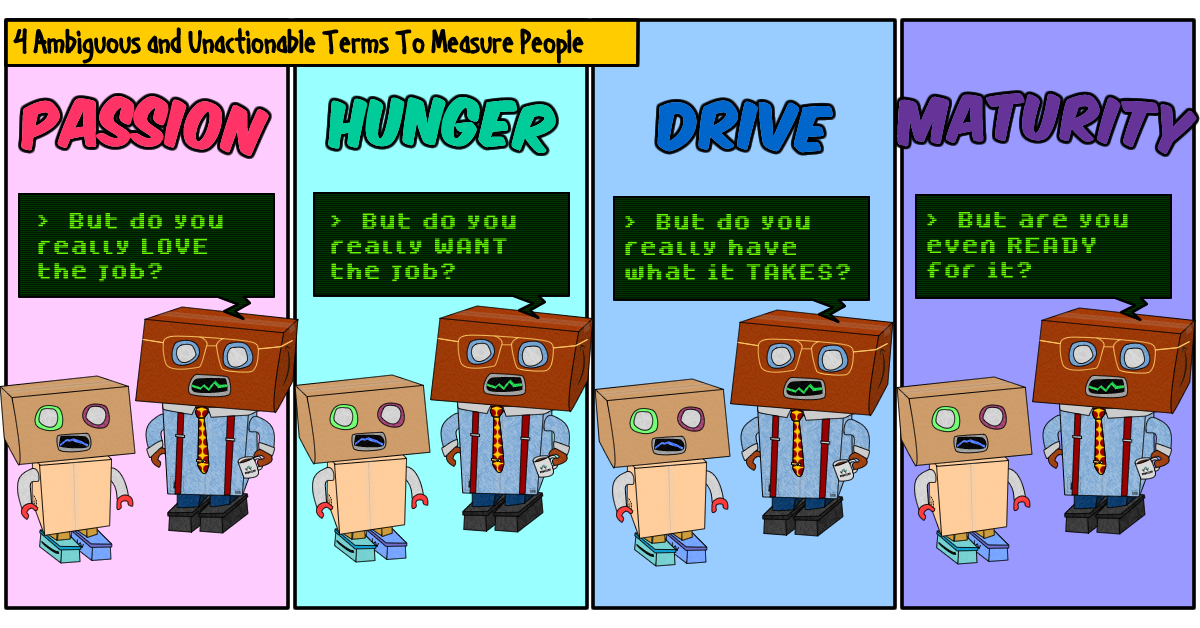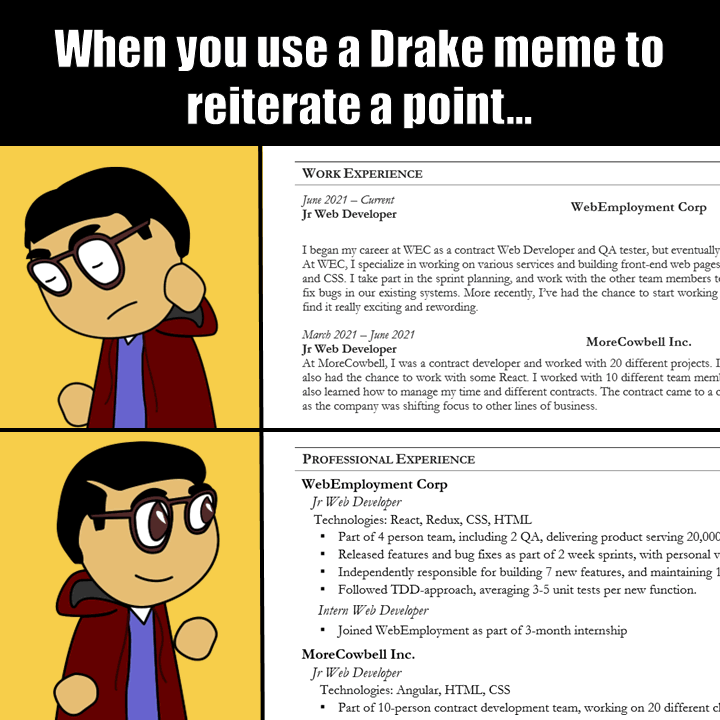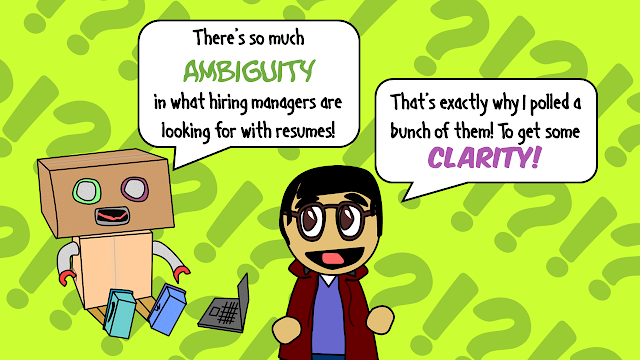Ambiguous Terms When Interviewing
There are a lot of subjective terms that get thrown around when you go through the interview circuit.
These terms don't provide concrete and actionable insights, so let's break them down:
1) Passion is a solution in search of a problem. You've learned how to write code, use a tool, learned a skill - and you are looking for new ways to apply it. It's conveyed with the energy in your voice, the enthusiasm and excitement as you talk about your experience, and the projects you take on. The converse, a lack of passion, is someone who is apathetic: they do what was asked of them, but not much more. The emphasis on passion is because you're looking for innovators, people who will push the boundaries of what they know, and learn more, who will identify problems and solve them.
2) Hunger is seeing opportunities as stepping stones, without being opportunistic. It's a sense of progression with direction. It's volunteering oneself where others don't, accepting each challenge as an opportunity. It conveys humility and aptitude. It's not "I don't know," but "I don't know...yet." It's an admission of not knowing everything, coupled with the desire to learn. You are asking for book recommendations, you talk about the blogs and people you follow, the things you watch, listen to, the challenges and projects you took on. The opposite of hunger are those who are satisfied with the status quo, and not looking to disrupt things. It's treating symptoms and not causes. Hiring managers want hungry people because it improves quality, raises the bar, and elevates the kinds of problems the team may deal with.
3) Drive is doing things for yourself when others won't/haven't. It's self-reliance, but also being industrious. It shows itself as the things you've done - i.e. maybe you haven't had a job yet, or maybe your employer limited your ability to learn and do broader things, so you gave yourself projects to learn things you couldn't work on. "Our company builds a SaaS scheduling app, but I always wanted to build a physics simulator - so I did." The opposite of Drive is fairly obvious - it's basically finding excuses: "I never did this because I wasn't asked to" or "I was never given the time." Drive is valuable because sometimes there are budget constraints, there are problems that cannot be predicted. You want people who understand their area of responsibility but are not afraid to extend beyond that area. People with drive don't say: "That's not my job."
4) Maturity is problematic, and I don't recommend using it. It's generally meant to convey whether someone has reached a certain level of skill or professionalism, but it can also cover how one communicates, how one presents, thinks or acts. Because it can be exclusionary and marginalizing, it's better to avoid the term altogether. Focus on examples instead. If you come across this term, my suggestion is politely push back by asking for actionable specifics.
There are plenty of other ambiguous terms out there, and just like 'Maturity' whenever you run into them it's perfectly fine to ask for clarity. Consider asking: "Can you give me some examples of what you're looking for? It will help me focus my responses around the right things."





